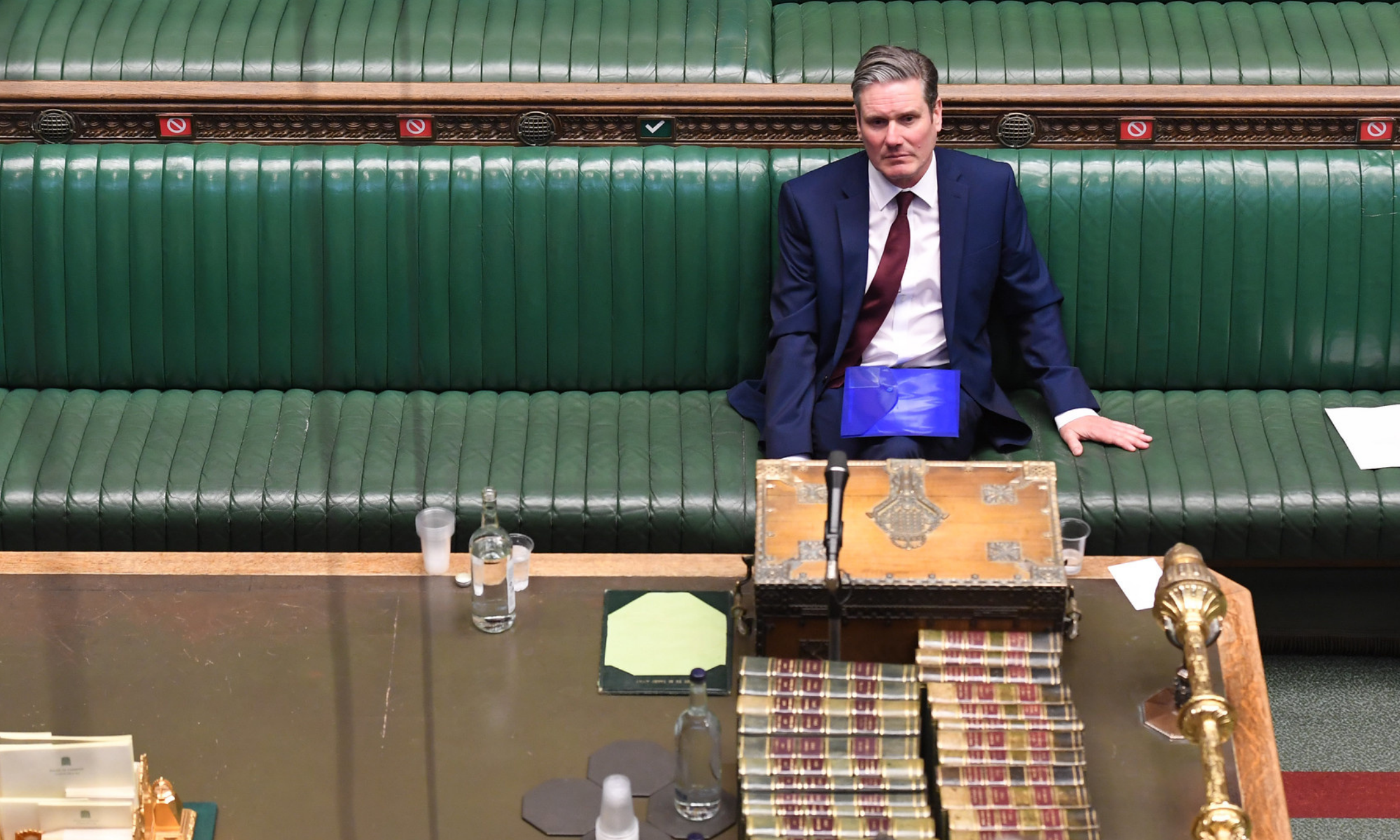
UK Parliament/Flickr
As long as Labour keep sacrificing their principles, power will evade them
Labour haven't got a clue. But their flailing has led to a burgeoning resurgence of grassroots power.
Lauren Pemberton-Nelson
26 Jan 2022
At Prime Minister’s Questions (PMQs) on 19 January, Keir Starmer smiled with delight as he boasted about Bury South’s new Labour MP Christian Wakeford, who defected from the Conservative party just minutes before the questions started. To Starmer, and many left-leaning centrists, having someone who consistently voted for oppressive and inhumane Tory policies now as a Labour MP appears to be something to be proud of.
Considering Wakeford’s views, his warm welcome into the party might have felt like a surprise betrayal to marginalised communities at risk of harm from the policies he supports. But any sense of surprise would have required trust in Keir Starmer’s Labour party in the first place. Wakeford has supported the horrific Nationality and Borders Bill and Police, Crime, Sentencing and Courts Bill, whilst opposing Palestinian statehood, and opposing urgently needed measures to reduce climate change. Since joining Labour, he has made it very clear that his defection doesn’t mean a change in political views. Perhaps that doesn’t bother Keir Starmer.
On many occasions over the past two years, it’s felt like Starmer is on a mission to show that he doesn’t care about the most marginalised communities, who have historically turned out for Labour at elections. From his comments referring to Black Lives Matter as a ‘moment’, to his silence on Islamophobia in the party, Starmer’s supporters just seem to view this disregard for minorities as part and parcel of the ‘grown up politics’ they’ve been talking about for the past 18 months.
“On many occasions over the past two years, it’s felt like Starmer is on a mission to show that he doesn’t care about the most marginalised communities”
Since Wakeford’s defection was announced, there have been false equivalences around winning over Conservative voters – as if winning the support of people who have previously voted Tory is the same thing as winning over Tory MPs. A large percentage of the population are swing voters, but MPs are usually ideologically loyal to the party they support. Those who have criticised the defection have faced patronising comments online about how they ‘lack the strategy required to win elections’ or ‘don’t understand how parliamentary democracy works.’ During a time when many believe that any form of Labour government is better than a Tory one, it feels almost revolutionary to argue that the Labour party shouldn’t try to win votes by appeasing the right.
Wakeford’s defection is a synonym for a larger issue amongst left-leaning centrists: their willingness to forgo their principles for the slightest increased chance at power. Yet what is the point in a Labour Government with MPs who support the criminalisation of protest and asylum seekers?
“Yet what is the point in a Labour Government with MPs who support the criminalisation of protest and asylum seekers?”
For the past two years under Starmer’s leadership, we have seen the Labour party pivot to Tory-lite through his silence on transphobia amongst his own MPs; his lack of support for increasing the minimum wage to £15 an hour and ordering Labour MPs to abstain on the Overseas Operations Bill. It’s a shame that those in support of Labour showing an ‘ideological overlap’ with conservative values haven’t realised that this tried and tested tactic doesn’t work. (While Labour may currently be pulling ahead in the polls, this is less to do with Wakeford’s defection than it is to do with the public backlash to Boris Johnson’s ‘Party-gate’ scandals).
Labour regularly announce their new principles, with those set out in January of “Security, prosperity, respect” differing from those of “Work, care, equality, security” announced just a few months prior in September 2021. Though it seems that in reality, these principles are all just buzzwords to mask the fact that Labour has none.
This ideological self-sacrifice from the Labour leadership will not pay off. What the most disadvantaged and marginalised communities deserve is a party that shows it cares, against the backdrop of increased poverty for ethnic minorities and a Tory government continuously trying to implement draconian laws that will hit us the hardest. There’s also rumours of more possible defections. If Labour are willing to accept more MPs with an equally awful, if not worse, voting record than Wakeford then where does the buck stop?
“This ideological self-sacrifice from the Labour leadership will not pay off”
In the past couple of years, grassroots organisations have led dozens of protests on a wide spectrum of issues, including the climate crisis, Black Lives Matter, peace and justice for Palestinians, and resistance to police powers and the government’s draconian laws. These protests were possible due to alliances and coalition building. It was possible because grassroots groups like Sisters Uncut, Insulate Britain and Palestine Solidarity Campaign inspire people to turn out to the streets and believe that they can make a difference.
And differences have been made. We’ve seen the House of Lords vote down proposals on the Policing Bill, and last year, the people of Glasgow successfully blocked an immigration raid in a wonderful demonstration of solidarity. Aside from a few individual MPs, where has the Labour party been on this? And why aren’t these types of progressive values reflected in Starmer’s leadership today?
Grassroots, radical organisations are not confined, nor defined, by what buzzwords sound good according to this week’s focus groups, or political point scoring. Using the power we have outside of the voting booth does and will continue making a difference.

Nadia Whittome: ‘Jeremy Hunt’s Spring Budget is a slap in the face for Britain’s workers’

How the cost of living crisis is forcing LGBTQ+ people to make impossible choices

Can only the heartless survive in politics?





